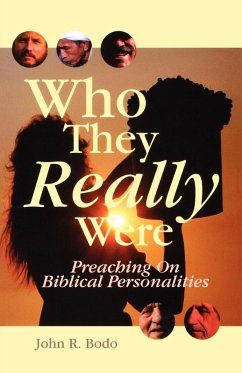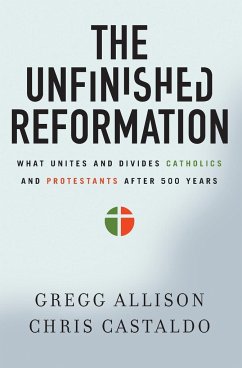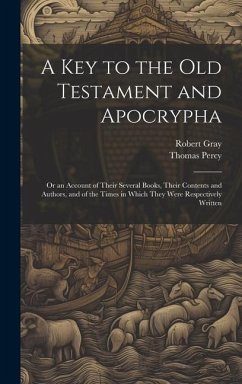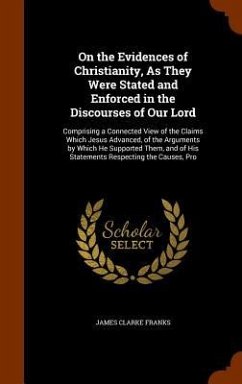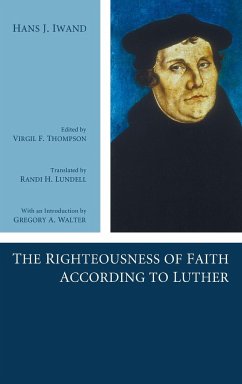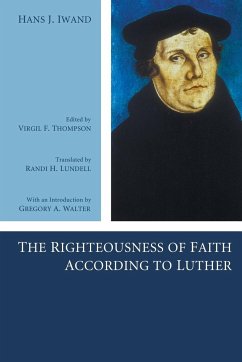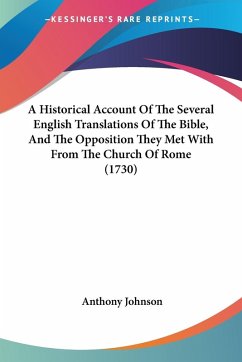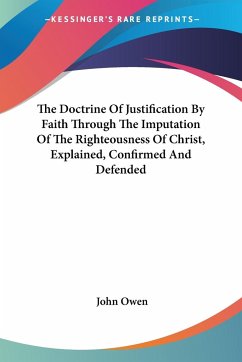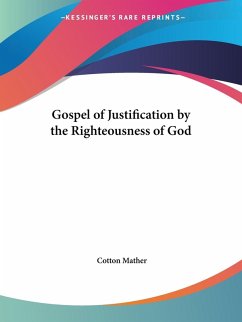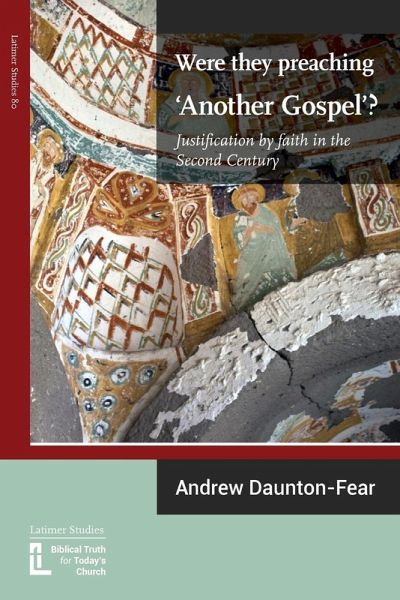
Were They Preaching 'Another Gospel'? Justification By Faith in the Second Century
Versandkostenfrei!
Versandfertig in 1-2 Wochen
8,49 €
inkl. MwSt.

PAYBACK Punkte
4 °P sammeln!
We are very familiar with the New Testament and can easily verify its teachings, but what happened to these teachings subsequently? Were they upheld, diluted or discarded? In particular, what did the Church Fathers make of Paul's cardinal doctrine 'justification by faith'? The sixteenth-century Protestant Reformers thought it was ignored prior to Augustine (354-430). Were the writers of the second century influenced by Paul, or did they manipulate his meaning to support their own arguments and new situations? This study looks first at the New Testament to see what Paul actually says before tur...
We are very familiar with the New Testament and can easily verify its teachings, but what happened to these teachings subsequently? Were they upheld, diluted or discarded? In particular, what did the Church Fathers make of Paul's cardinal doctrine 'justification by faith'? The sixteenth-century Protestant Reformers thought it was ignored prior to Augustine (354-430). Were the writers of the second century influenced by Paul, or did they manipulate his meaning to support their own arguments and new situations? This study looks first at the New Testament to see what Paul actually says before turning to six important early Fathers: Clement of Rome at the tail end of the first century, Ignatius of Antioch, Justin Martyr, Irenaeus and Clement of Alexandria from the second century, and Tertullian from the late second to the early third century. 'I commend this booklet..[which] encourages us to see that Paul's teaching on justification by faith was present in the writings of Early Church leaders. He does not claim that it had the prominence or detailed and applied expression that it had at the Reformation: it would be unrealistic to expect that to be the case. However the evidence ...gives us a useful insight into the Early Church, and its perception and use of this key Pauline and Biblical doctrine.' Peter Adam Andrew Daunton-Fear gained a love of the Early Church as a student at Cambridge. He has been an incumbent in the UK, taught New Testament and Church History at Ridley College, Melbourne, and is currently teaching at St. Andrew's Theological Seminary, Manila. His publications include Healing in the Early Church (Paternoster, 2009) and (jointly with Roger Beckwith) The Water and the Wine: A Contribution to the Debate on Children and Holy Communion (Latimer Studies 61, 2005).





